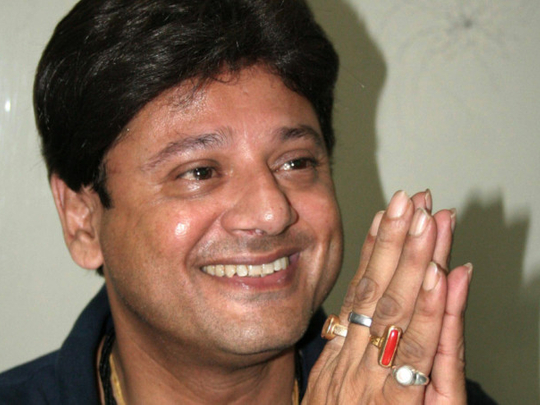
It is the deepest, darkest secret of thousands of women in India. Yet, the word “rape” is apathetically used by the political class as they refrain from being sensitive towards the other half of the population. The word has unconsciously intruded into the vocabulary of our political discourse as a commonly used metaphor. Politicians throw the word around, whether as an ominous warning to violence or as a misplaced attempt at humour. However, this is particularly disturbing since they are not ordinary folk who may be excused on grounds of ignorance. All those in the thick of controversy over the past couple of months are elected representatives.
When they speak, their voices are heard. Their words are amplified in our drawing rooms and bedrooms, through repeated visuals on television and derision in print in the presence of children and adolescents across the country. When lawmakers shoot their mouths off, they also undermine the institutions to which they have been elected. Even more appalling is the fact that Indian politicians are routinely allowed to go scot-free after making insensitive remarks while speaking on crimes against women. At the peak of campaigning during India’s last general elections, Mulayam Singh Yadav, a prominent regional satrap and leader of the ruling Samajwadi Party in Uttar Pradesh, India’s biggest state, had made highly provocative remarks on the issue of rape. Yadav had shocked the nation when he opposed capital punishment for rape at an election rally in Moradabad on April 11. “Boys will be boys. Boys commit mistakes. Should they be hanged for rape?” Mulayam had said.
In India, the stigma of rape runs deep. Women fear being disowned by family and society if such attacks are reported. There is pressure from family members, including parents of the victims, to keep quiet about the crime. There are cases where the crime is committed at home — even more reason for victims to be frightened about reporting it. Women accused of rape are subjected to embarrassing questions by lawyers about their sexual history, the nature of their dress and whether it was consensual or not. An analysis of various authentic studies conducted by the National Crime Records Bureau, Human Rights Watch and other agencies reveal that incidents of rape have increased over the years, endangering the honour of women in India.
Every 20 minutes, a girl is raped in India, another is kidnapped or abducted every 44 minutes while a third is subjected to cruelty by her husband or relatives and nearly 19 dowry deaths take place every day. There is never a day that goes by without the Indian media reporting on rapes and fatal attacks on women. Politicians sideline the accusations of deteriorating law and order, verbally attacking each other by claiming the barbarous crimes were committed for political vengeance and that the media is biased in its reporting. The media has been blamed for tarnishing India’s image overseas, while politicians have even gone to the extent of attacking celebrities for attracting vulgarity into homes through movies and films, thus polluting young minds.
Inflammatory remarks
Under severe public pressure in recent years, the Indian lawmakers have been forced to enact laws for every conceivable crime against women. There are laws for even making inciting, inflammatory remarks against women. However, such open justification in favour of the perpetrators of the crime by the lawmakers themselves strongly cautions against the expedient notion that justice is achieved once such laws are passed. Justice lies in ensuring that everyone has the right to occupy public space without feeling threatened on account of their gender. Leader after leader, through their statements, have echoed arrogance.
While Mulayam’s remark does not warrant initiation of criminal proceedings against him, Trinamool Congress member of parliament Tapas Pal’s hate speech certainly does, so does President of India Pranab Mukherjee’s son Abhijeet Mukherjee’s reference to women as ‘dented and painted’ figures on national television.
However, they are in the illustrious company of our very own “protectors of culture”. A small-time minister in the Goa government has shot into the limelight by saying girls should not party in pubs in short dresses as it is against Goan culture. Goa’s chief minister has raised the bar, so to speak, by saying industry owners in Goa face more troubles than a rape victim. This misplaced attempt of the political class to try and put the onus of rape on women has been repeatedly argued about, whereby they have been advised not to go out after dark or dress provocatively. Women have been asked to learn the art of self-defence like karate or have men for company when going out.
An invigorating election, that was a national cry for change, has shown us that democracy is alive and kicking in India. However, lawmakers must refrain from abuse of the faith that has been reposed in them. It is time for the political class to take a second look at itself and reinstate its credibility in the eyes of a cynical public that fears for its safety.







